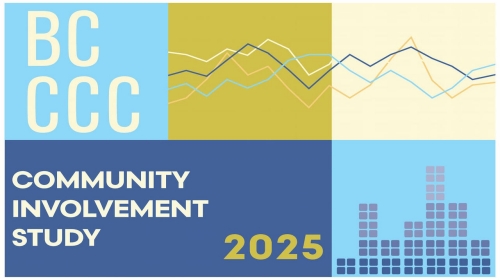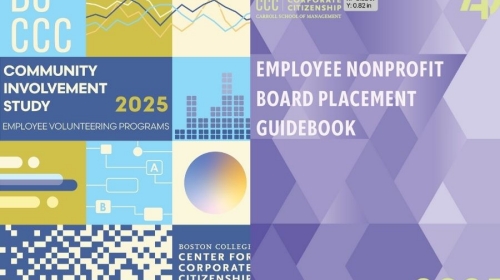WEBINAR: This webinar explores how to measure and communicate your organization's social impact with proven frameworks and strategies that matter to stakeholders.
Ready Response: Corporate Citizenship Imperative, Disaster Relief, and More

COVID-19 is disrupting business operations and ESG programs across the world. To support your efforts in this time of disruption, we’re rounding up relevant Center resources, news, company best practices, and research and gathering it in one place at Resource(ful).
Blog: The Corporate Citizenship Imperative During Crisis
FedEx is using its strongest capabilities to meet critical demands of the COVID-19 crisis—its logistics network and expertise. READ MORE
Updated Issue Brief: Disaster Preparedness, Relief, and Recovery
To reflect our new context, this issue brief has been updated with new company examples and best practices on nonprofit partnership, employee relief funds, and more.
Helping communities rebound from a traumatic event or natural disaster requires multilevel and cross-sector effort. In order to quickly and efficiently deploy corporate resources, corporate citizenship professionals must partner internally and externally to make the best possible use of all available resources, from corporate giving and volunteering to security, logistics, and supply chain management. Read the full issue brief.
Members in Action
Check out our ongoing list of how companies are responding to COVID-19.
CITGO retailers in Mount Pleasant, Michigan are stepping up to Fuel Good in the local community during the COVID-19 pandemic. The CITGO stations are providing $0.99 meals for children unable to rely on school lunches during the statewide stay-at-home order.
Duke Energy and its subsidiary, Piedmont Natural Gas, donated $25,000 to the Nashville Food Project to help with their COVID-19 relief programs. The Nashville Food Project normally gives more than 5,000 prepared meals a week to other nonprofits that distribute the food to those in need, but have since transitioned to distributing fresh produce and groceries during the COVID-19 pandemic.
The National Grid Foundation has made a donation of $500,000 to 45 local organizations across Massachusetts, New York, and Rhode Island to help support hunger relief and human services for people in need and struggling from the impact of the COVID-19 pandemic, including those providing meals to children and families, and those assisting first responders.
How is your company responding to COVID-19? Let us know by contacting us at ccc@bc.edu
Relevant Research
Corporate citizenship communications increase during economic decline
During periods of economic downturn, companies tend to increase their corporate social responsibility (CSR) communications, integrate these messages into existing marketing communications, and emphasize how consumers as individuals benefit from corporate citizenship efforts. READ MORE
Employee giving to employee support programs makes for happier, more dedicated employees
Employees who gave to employee support programs saw the company as more caring which affected their commitment to the company positively. Overall, employees who gave to the program experienced increased job satisfaction, as a result of stronger commitment and an improved perception of the company. READ MORE
News You Can Use
Small businesses get COVID-19 relief in private grants, as Verizon boosts support to $7.5M
As financial assistance has been elusive for many struggling small businesses across the U.S., some of them are looking for support among their business networks and the private sector. Verizon offers one such grant program in partnership with the nonprofit nationwide community development group, Local Initiatives Support Corporation. Verizon announced last week that it is bolstering the fund with an additional $2.5 million donation, bringing the total up to more than a $7.5 million. USA Today
California lifts ban on plastic bags amid virus concerns
Last week, California Gov. Gavin Newsom issued an executive order that permits stores to provide customers with disposable plastic bags for the next 60 days. The move was made to protect public health and safety and minimize the risk of COVID-19 exposure for essential workers. California is one of many states that are changing rules on plastic bags amid concerns that reusable bags may help spread the virus. New York Times
Related Content
RESEARCH BRIEF - Researchers investigated how ESG activities help or hurt financial performance, using nine years of data from over 1,200 global companies.
RESEARCH BRIEF - Researchers analyzed 4 US energy exchange-traded funds (ETFs) over 15 years, including 2 dirty energy funds tracking fossil fuel companies and 2 clean energy funds tracking renewable energy companies.
RESEARCH BRIEF - Researchers conducted a survey, which measured perceptions of CSR and ethical leadership within the manufacturing and service industries.
WEBINAR: This webinar explores how corporate giving will be reshaped by the One Big Beautiful Bill. Hear directly from corporate citizenship leaders as they share innovative, real-world strategies that deliver impact for communities and results for business.
This study explores shifting trends in employee volunteering, corporate giving, and other means of corporate community involvement.
This guidebook offers insights on placing employees in nonprofit board service roles.
This study explores shifting trends in employee volunteering, corporate giving, and other means of corporate community involvement.








